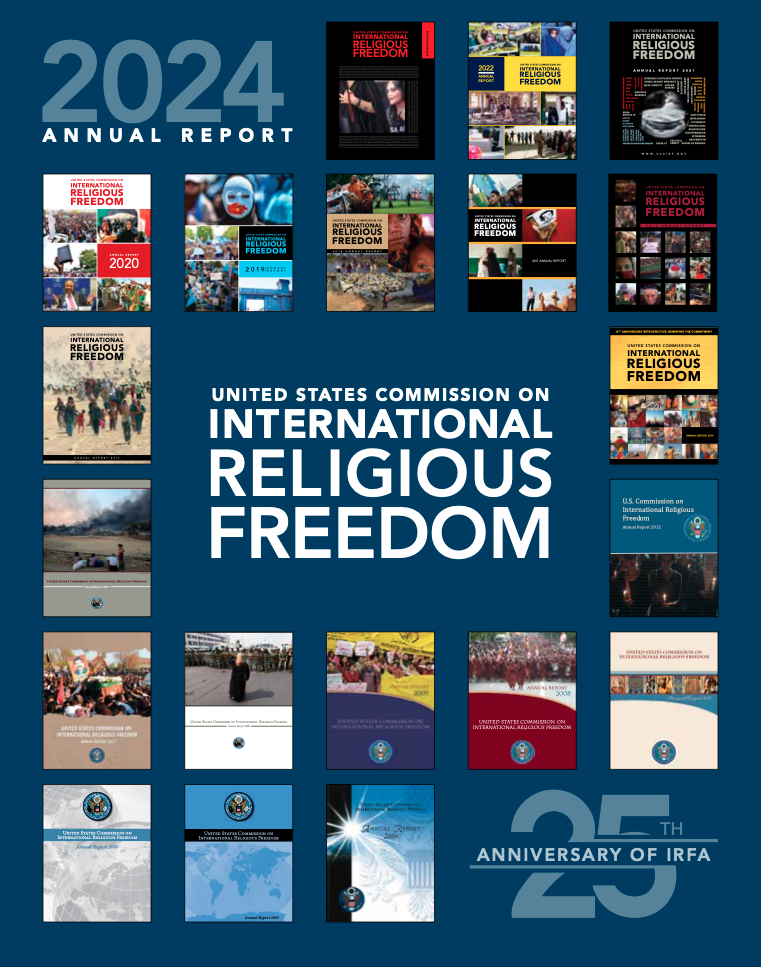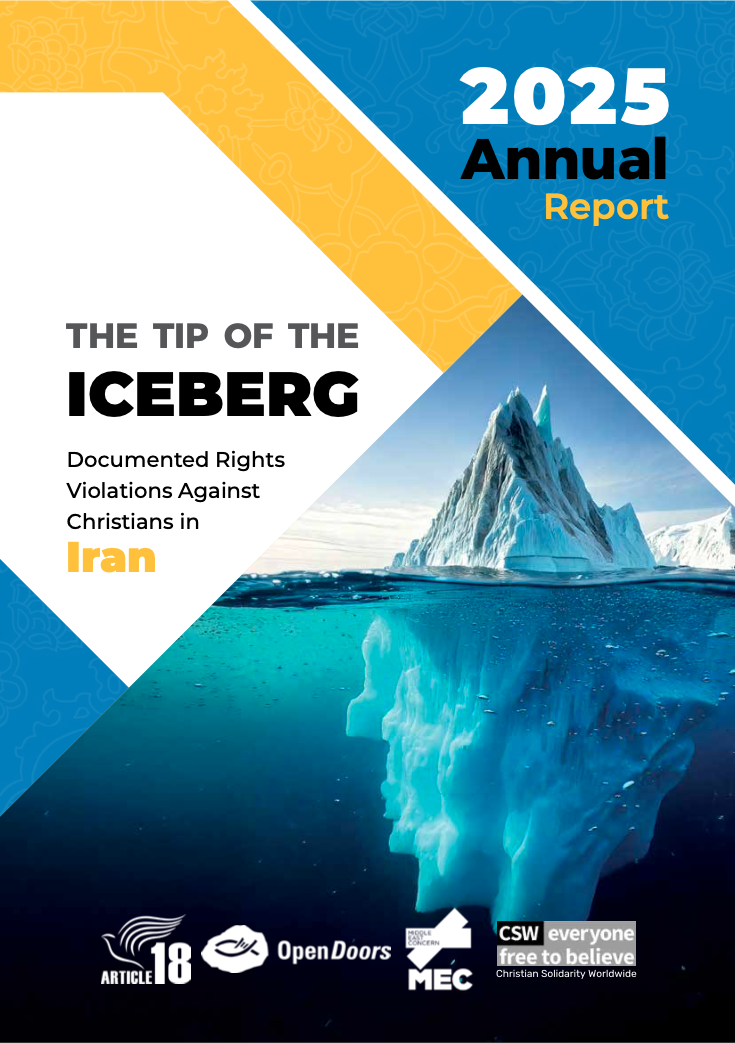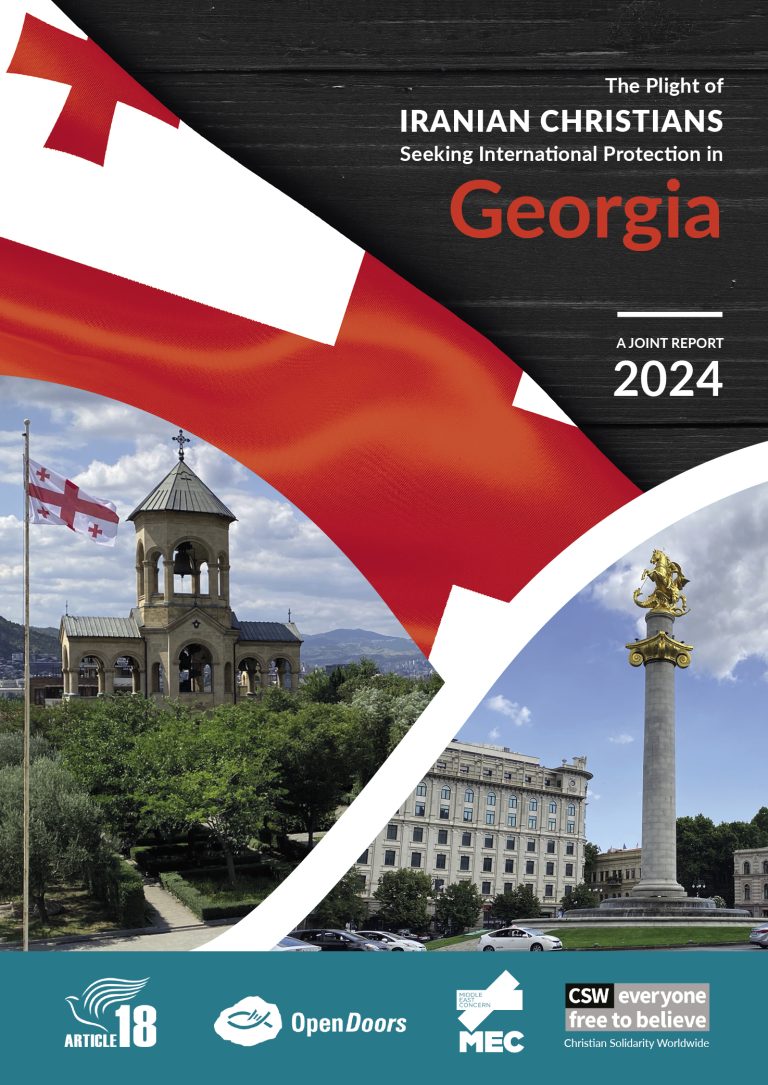The US Commission on International Religious Freedom has once again recommended that Iran be re-designated a “Country of Particular Concern” for “engaging in systematic, ongoing, and egregious violations of religious freedom”.
In its latest annual report, published yesterday, the independent advisory body to the US State Department notes that the religious freedom conditions in Iran remain “extremely poor”.
According to USCIRF, Iran has the third most religious prisoners of conscience, behind only China and Russia.
Of the more than 2,200 religious prisoners documented in USCIRF’s FoRB Victims List in 2023, Iran accounted for 347 (15%).
The cases of five Iranian Christian prisoners of conscience – Homayoun Zhaveh and Sara Ahmadi, Joseph Shahbazian, Abdolreza (Matthias) Ali-Haghnejad, and Yousef Nadarkhani – were highlighted in the report, as were the mass arrests of Christians in the summer of 2023, and the targeting of Baha’is, Jews, Sunni and Sufi Muslims.
As well as re-designating Iran a “Country of Particular Concern”, USCIRF recommended that the US State Department:
- imposes targeted sanctions on government agencies and officials responsible for FoRB violations.
- stems the flow of surveillance technology and weapons platforms used to suppress lawful religious expression in Iran.
- facilitates financial and technological support for Iranians asserting their freedom of religion or belief through peaceful demonstrations and labour strikes.
- supports the UN Fact-Finding Mission to Iran.
- supports a Security Council referral of the situation in Iran to the International Criminal Court for investigation of crimes against humanity against those asserting freedom of religion or belief.
And that the US Congress:
- permanently reauthorises the Lautenberg Amendment, which aids persecuted Iranian religious minorities seeking refugee status in the United States.
USCIRF noted how, despite the “ceiling” for refugees being increased to 125,000 for 2023, less than half that number were resettled. The report calls on the Biden administration to “prioritize resettlement for survivors of the most egregious forms of religious persecution” – members of religious minority groups in Iran are among those who have been granted priority access to resettlement in the US – and to do more to “meet the admissions ceiling”.
USCIRF also called on Congress to reintroduce the bipartisan Stop Helping Adversaries Manipulate Everything Act (SHAME Act), which it said “would prohibit lobbyists from receiving compensation from countries designated as foreign adversaries by the U.S. Department of Commerce”.
Most of the designated countries, USCIRF noted, “engage in particularly severe religious freedom violations and other egregious human rights abuses”, including Iran.
“The SHAME Act would considerably strengthen the existing regulatory framework around lobbying on behalf of foreign governments,” USCIRF said.




0 Comments